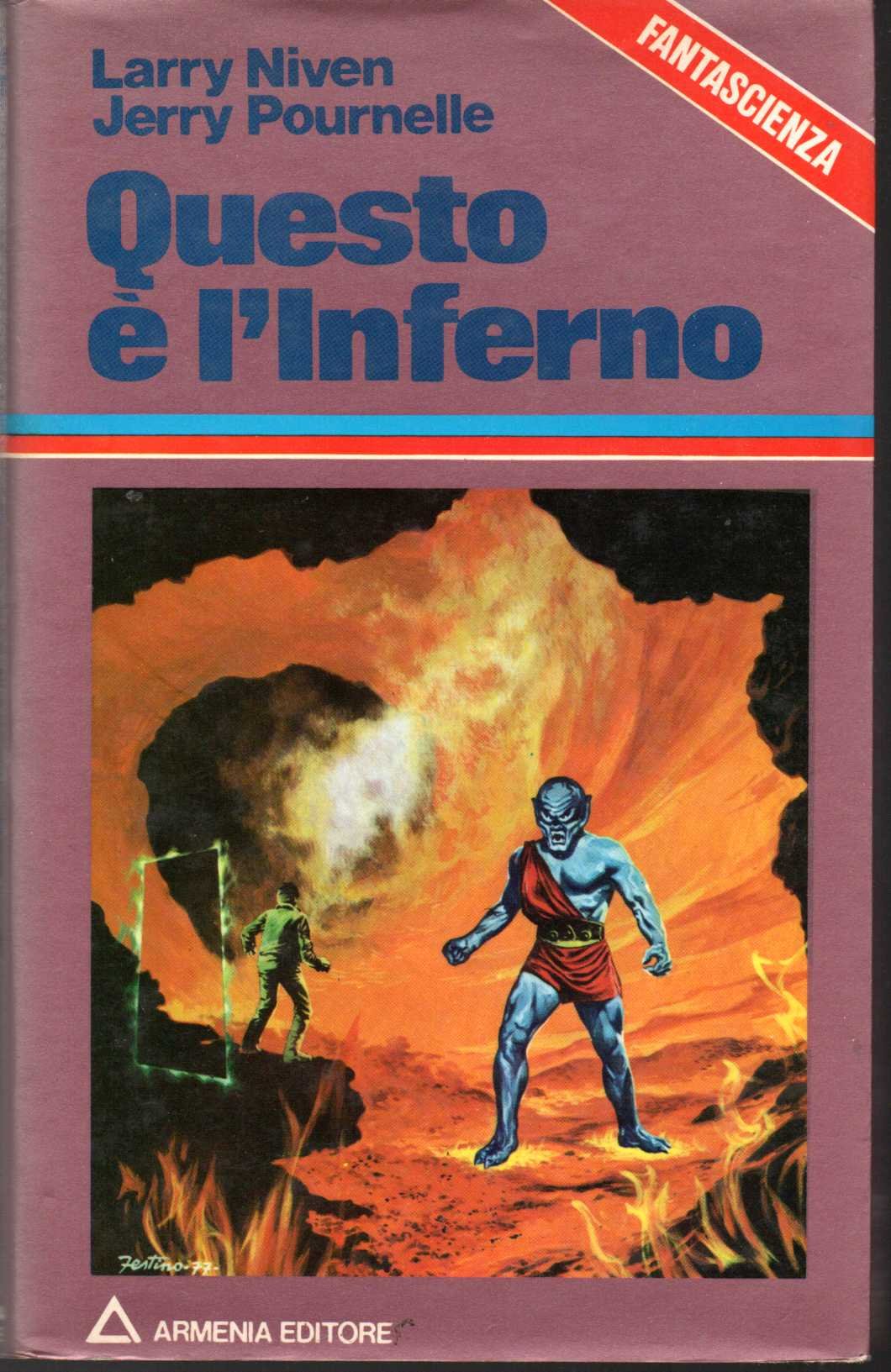Inferno by Larry Niven & Jerry Pournelle (1976)
Simply put, Inferno is a rendition of the roadmap to the layers in Dante’s Hell, however this time instead of Virgil guiding Dante, we have Benito Mussolini guiding Allen Carpenter (pen name Carpentier), a current day sci-fi author. Runner-up for the Nebula Award in 1977, Inferno sits nicely in that evil leaning fantasy hellscape we’ve all come to feel at home in.
Allen Carpenter falls to his death from a window after aspiring student writers goad him into a drinking game one night. He is awakened in Hell with Mussolini there to guide him, but Carpenter doesn’t make the connection that it’s Mussolini right away. Benito insists he can get Carpenter out of Hell, but it will require a journey through it. Carpenter is game and immediately tries to rationalize all the supernatural things he’s witnessing as feats of science, even finding it laughable, referring to his surroundings as an amusement park called ‘Infernoland’, reminiscent of Westworld. He imagines weather control, robots, bio-engineering, and even omniscience somehow being man made by the ‘Builders’. For the first half of the book he seems to be storing these notions in his mind to be used for his next sci-fi novel…so meta. The fun stops once he suffers a compound fracture in his thigh after a fall that should have killed him (fun fact: you can’t die once you're dead) only to watch it quickly heal in front of his eyes.
As they progress through the layers of Hell their situation becomes more and more dire and the punishments for those who dwell there get increasingly severe. Boiling lakes of blood, gluttonous damned who remain grotesquely obese, and a strange cat and mouse game where humans are chased by snakes, bitten by the snakes, the snake becomes human, the human becomes the snake, the chase resumes.
Link to Dante's Layers
"We're in the hands of infinite power and infinite sadism"
Deeper into Hell the demons become more prominent and more active in doling out punishments. When confronted by Carpenter the denizens of Hell all believe they are wrongfully being punished for their sins on earth, no matter how minor or misconstrued, but the denial is exactly what’s keeping them from escaping to purgatory. Carpenter finds their unwillingness to move on odd, but still convinces a few on the journey to join them. Dead and gone notables such as Billy the Kid and even Dracula are there to converse with and add to the madness.
Inferno is a quick read, easier than reading Dante and good enough to warrant tracking down its sequel, Escape from Hell, which I will arrange post haste. Join me this holiday season and let’s get evil together.


